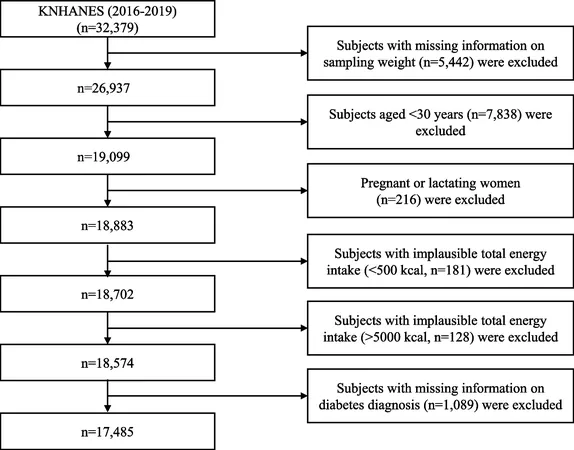
Revolutionizing Thyroid Cancer Treatment: A Multidisciplinary Breakthrough
2024-09-27
Revolutionizing Thyroid Cancer Treatment: A Multidisciplinary Breakthrough
In a rapidly evolving landscape for thyroid cancer treatment, Dr. Geoffrey David Young, MD, PhD, FACS, the chief of head and neck cancer surgery at Baptist Health's Miami Cancer Institute, shares critical insights on enhancing patient outcomes through a multidisciplinary approach. This innovative strategy encapsulates a blend of advanced imaging, molecular diagnostics, and collaborative care among specialists, paving the way for better management of thyroid cancer patients.
Dr. Young emphasizes the importance of lifestyle factors in mitigating the risk of thyroid cancer. Studies highlight that maintaining a healthy weight can significantly reduce the risk, particularly among those who are obese or severely obese. Additionally, he urges individuals working in environments with radiation exposure to take precautions, such as wearing thyroid shields during X-rays, thereby reducing the risk of radiation-induced cancers.
Collaboration is Key in Treatment
In the diagnosis and treatment of thyroid cancer, teamwork among various specialists is paramount. Young explains how a comprehensive thyroid cancer team typically includes endocrinologists, surgical professionals, radiologists, and radiation oncologists. This collaborative effort is essential for managing treatment plans effectively and for ensuring a streamlined approach throughout the patient’s journey — from diagnosis to survivorship.
One significant advancement in patient care mentioned by Dr. Young is the introduction of nurse navigators. These professionals guide patients through the healthcare maze, providing support and continuity of care that can greatly improve the overall experience for patients surviving thyroid cancer. With many patients enjoying excellent prognoses, long-term follow-up and effective survivorship programs are critical.
Advancements in Imaging Technology
Recent strides in imaging technology have markedly improved diagnostics and treatment planning for thyroid cancer. Dr. Young notes that reliance on ultrasound technology has grown, thanks to clearer images and easier accessibility in clinicians' offices. Furthermore, the enhancements in nuclear imaging, such as SPECT scans, allow for better anatomical representations and treatments tailored to the specific needs of patients, especially those with metastatic disease.
Molecular Biomarkers: The Future of Diagnosis
The discussion also shines a light on the role of molecular biomarkers in predicting disease progression and guiding treatment decisions. The discovery of BRAF mutations has been particularly groundbreaking—these genetic markers help to refine diagnoses and tailor therapies, especially in aggressive forms of thyroid cancer such as anaplastic thyroid carcinoma. Young stresses the importance of molecular profiling, indicating that new clinical options are becoming available for patients based on their genetic makeup, thereby improving treatment outcomes.
Future Therapies on the Horizon
Looking ahead, the potential for targeted therapies and immunotherapies is vast. New clinical trials are focusing on advanced therapies for metastatic and other aggressive thyroid cancer types, enhancing the treatment avenues available to patients. While fewer clinical trials exist for well-differentiated thyroid cancers, there is a keen interest in investigating "active surveillance" strategies for small, asymptomatic tumors—a method showing promise based on international studies.
Dr. Young encourages oncologists to keep abreast of the evolving treatment landscape outlined by organizations like the American Thyroid Association (ATA). Staying updated on the latest guidelines not only improves patient care but also reflects the shift toward a "less is more" approach, where less invasive treatments are considered for specific patient scenarios.
In conclusion, the comprehensive insights shared by Dr. Young underscore a hopeful future for thyroid cancer patients. Through continued research, multidisciplinary collaboration, and advanced technologies, the landscape of thyroid cancer treatment is set to change significantly for the better, ensuring that treatment is as individualized and effective as possible.





 Brasil (PT)
Brasil (PT)
 Canada (EN)
Canada (EN)
 Chile (ES)
Chile (ES)
 España (ES)
España (ES)
 France (FR)
France (FR)
 Hong Kong (EN)
Hong Kong (EN)
 Italia (IT)
Italia (IT)
 日本 (JA)
日本 (JA)
 Magyarország (HU)
Magyarország (HU)
 Norge (NO)
Norge (NO)
 Polska (PL)
Polska (PL)
 Schweiz (DE)
Schweiz (DE)
 Singapore (EN)
Singapore (EN)
 Sverige (SV)
Sverige (SV)
 Suomi (FI)
Suomi (FI)
 Türkiye (TR)
Türkiye (TR)